OCR A-level Religious Studies: Religion and Ethics
1/115
There's no tags or description
Looks like no tags are added yet.
Name | Mastery | Learn | Test | Matching | Spaced |
|---|
No study sessions yet.
116 Terms
normative ethics
the study of the principles, rules, or theories that guide our moral actions and judgments
Thomas Aquinas (1225-1274)
(Roman Catholic Church) Italian theologian and Doctor of the Church who is remembered for his attempt to reconcile faith and reason in a comprehensive theology

Summa Theologica
Saint Thomas Aquinas's comprehensive systematic examination of Christian theology

practical reasoning
the process of figuring out what to do, or reasoning directed toward action
empiricism
the view that knowledge originates in experience and that science should, therefore, rely on observation and experimentation
Aristotle
Greek philosopher. A pupil of Plato, the tutor of Alexander the Great, and the author of works on logic, metaphysics, ethics, natural sciences, politics, and poetics, he profoundly influenced Western thought. In his philosophical system, which led him to criticize what he saw as Plato's metaphysical excesses, theory follows empirical observation and logic, based on the syllogism, is the essential method of rational inquiry.

natural law
a doctrine that society should be governed by certain ethical principles that are part of nature and, as such, can be understood by reason.
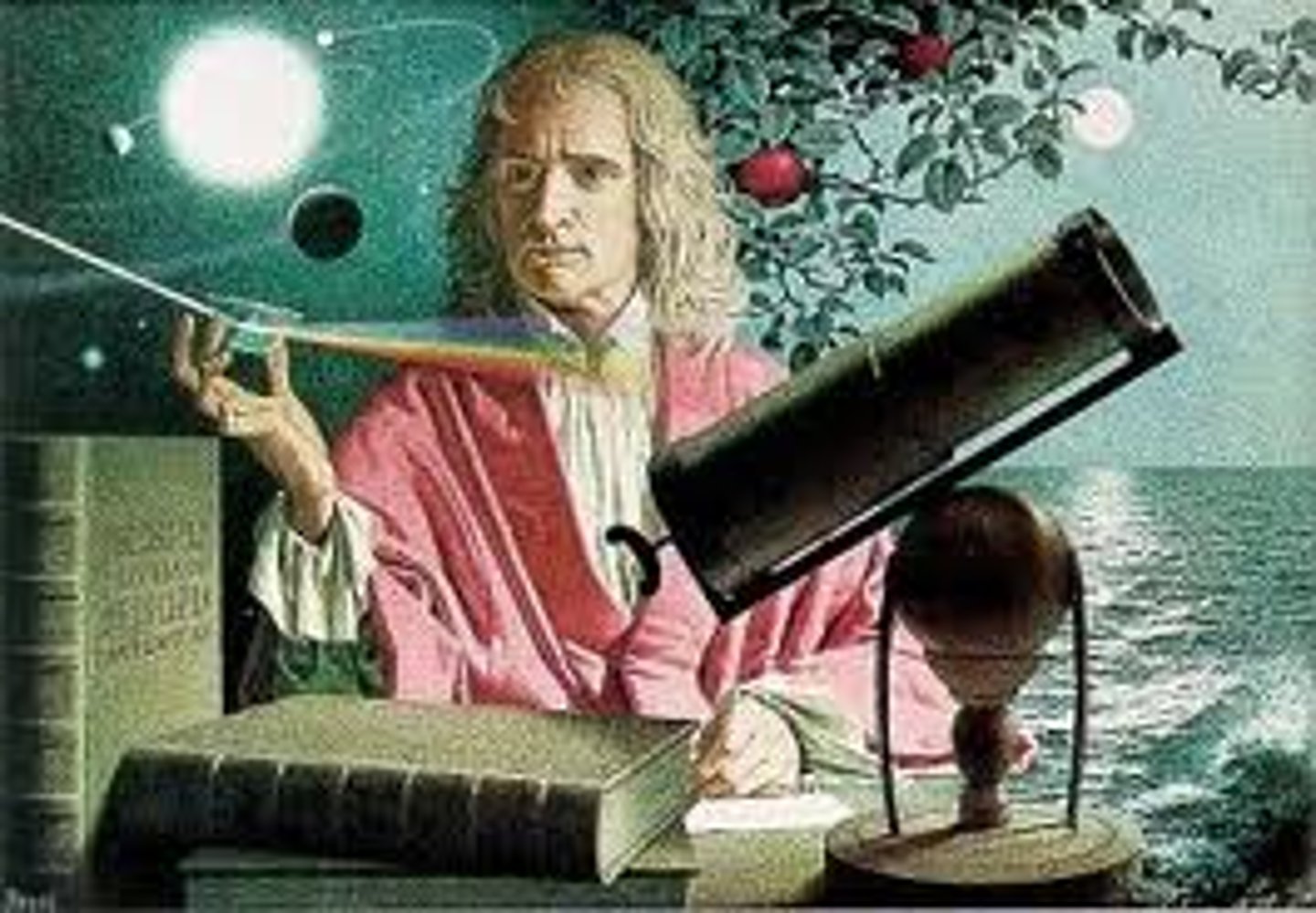
deontological
the duty to do the right thing, regardless of the result
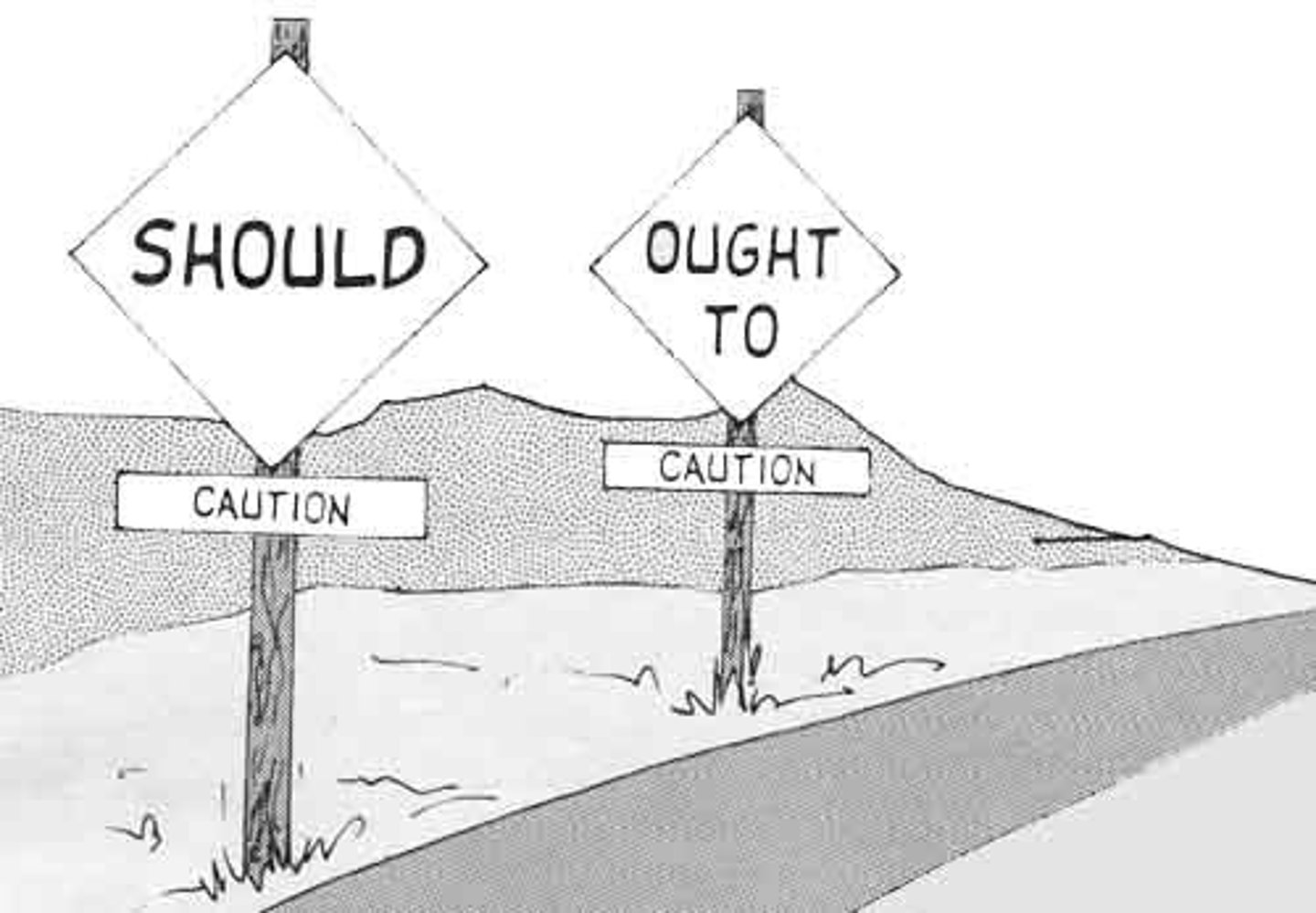
The Four Tiers of Law
An approach to ethics based on a universal order that all moral rules were based on. The Four being Eternal Law, Divine Law, Natural Law and Human Law.
Eternal Law
The order in creation that reflects God's will and purpose; it is eternal because it is always true and never changes. All other types of law have their basis in Eternal Law and are only true if they reflect the truth of Eternal Law.

Divine Law
The moral law known to human beings as revealed by God in the bible

divine command theory
a theory asserting that the morally right action is the one that God commands
Christian humanism
a movement that developed in northern Europe during the renaissance combining classical learning with the goal of reforming the catholic church, combining humanist and religious ideas
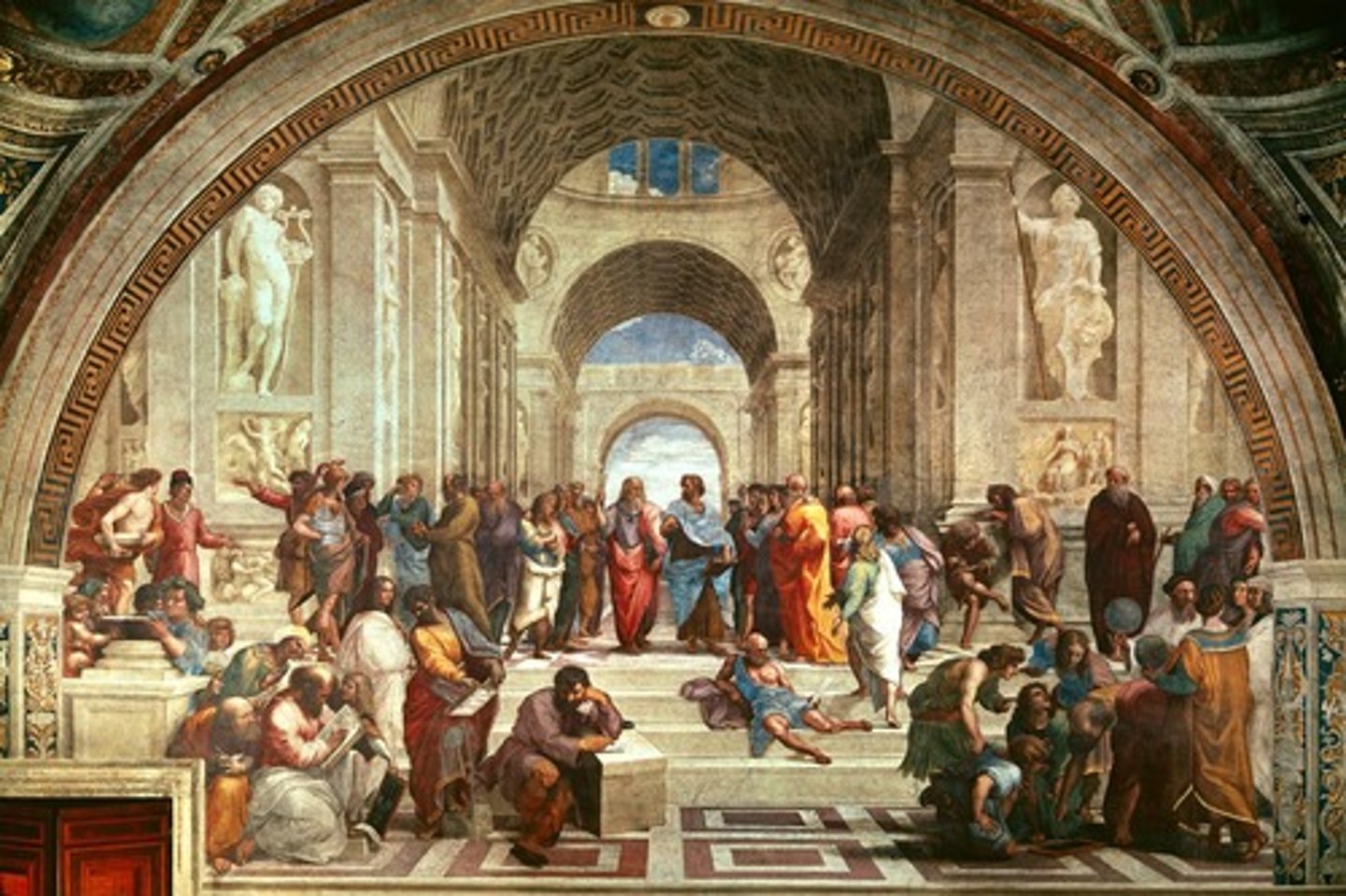
virtue ethics
an ethical philosophy claiming that morality's primary function is to develop virtuous character
situationalism
the view that environmental conditions influence people as much or more than their personality
Human Law
Law promulgated by human authority, either civil or ecclesiastical. In order to be legitimate, human law must be consistent with laws of God, conform to the natural law, and promote the good of society.

the synderesis rule
a key precept to do good and avoid evil
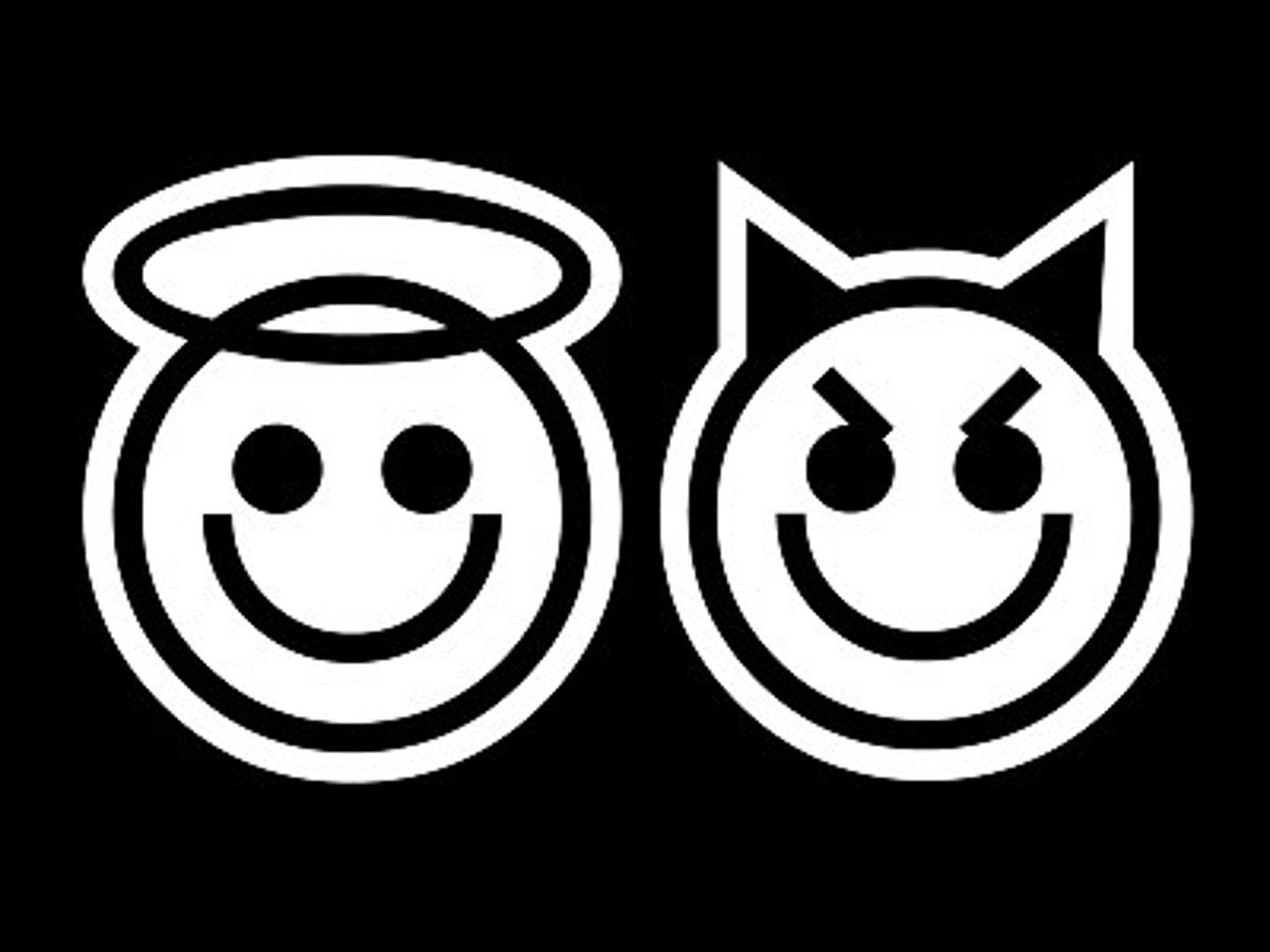
primary precept
the fundamental rules known innately which can never be broken and from which secondary precepts are drawn
the five primary precepts:
preservation of innocent life, ordering of society, worship of God, education of children, reproduction.
secondary precepts
the application of the primary precepts using human reason, which are not absolute. As they might change over time, as our society changes.
common good
the social conditions that allow for all citizens of the earth, individuals and families, to meet basic needs and achieve fulfilment.
basic methodological requirements
the areas required for humans to flourish: pursuit of goods, a coherent plan of life, no arbitrary preferences among values, detachment and commitment, the limited relevance of consequences, the requirements of common good and following one's conscience
John Finnis
an Australian-born Oxford philosopher known for his development of natural law theory. His natural law is based strongly on Aristotelian principles, on what Finnis calls 'basic forms of human flourishing'.
real goods
the keeping with the telos of man
apparent goods
appear to be good largely because we value them, but in fact are not good or as good as believed because they are contrary in some way to our nature
prohibitory injunction
an order prohibiting an act
positive injunction
a type of natural Law that promotes obtaining a basic good -
telos
fixed final outcome
eudaimonia
human flourishing, or happiness associated with living a life of virtue.
interior act
the motive / intention for performing an act.
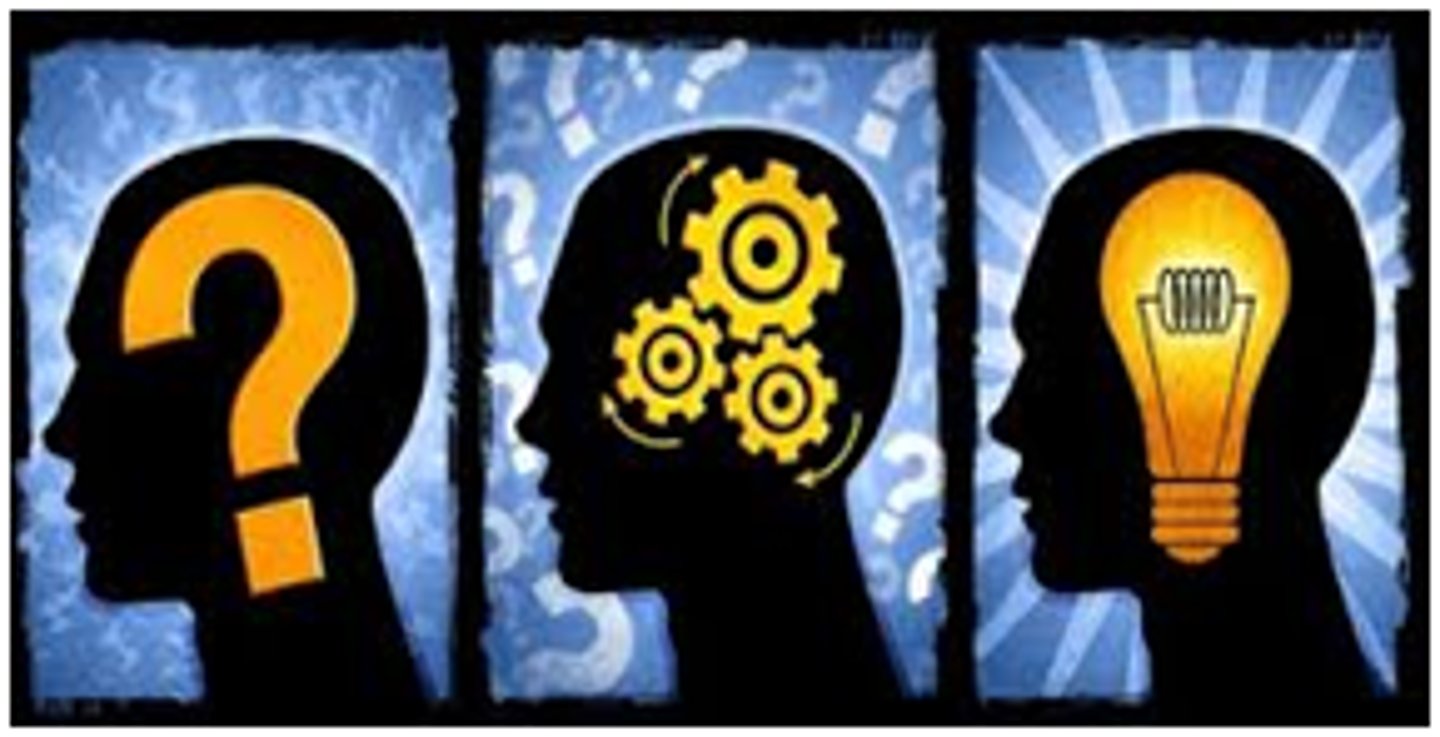
exterior act
the execution of the will's decision
banality of evil
Hannah Arendt's concept of how ordinary people can be persuaded through pressure from authorities or group pressure to harm innocent people, believing it to be normal and justifiable

Stanley Milgram
an American social psychologist, best known for his controversial experiment on obedience conducted in the 1960s during his professorship at Yale.
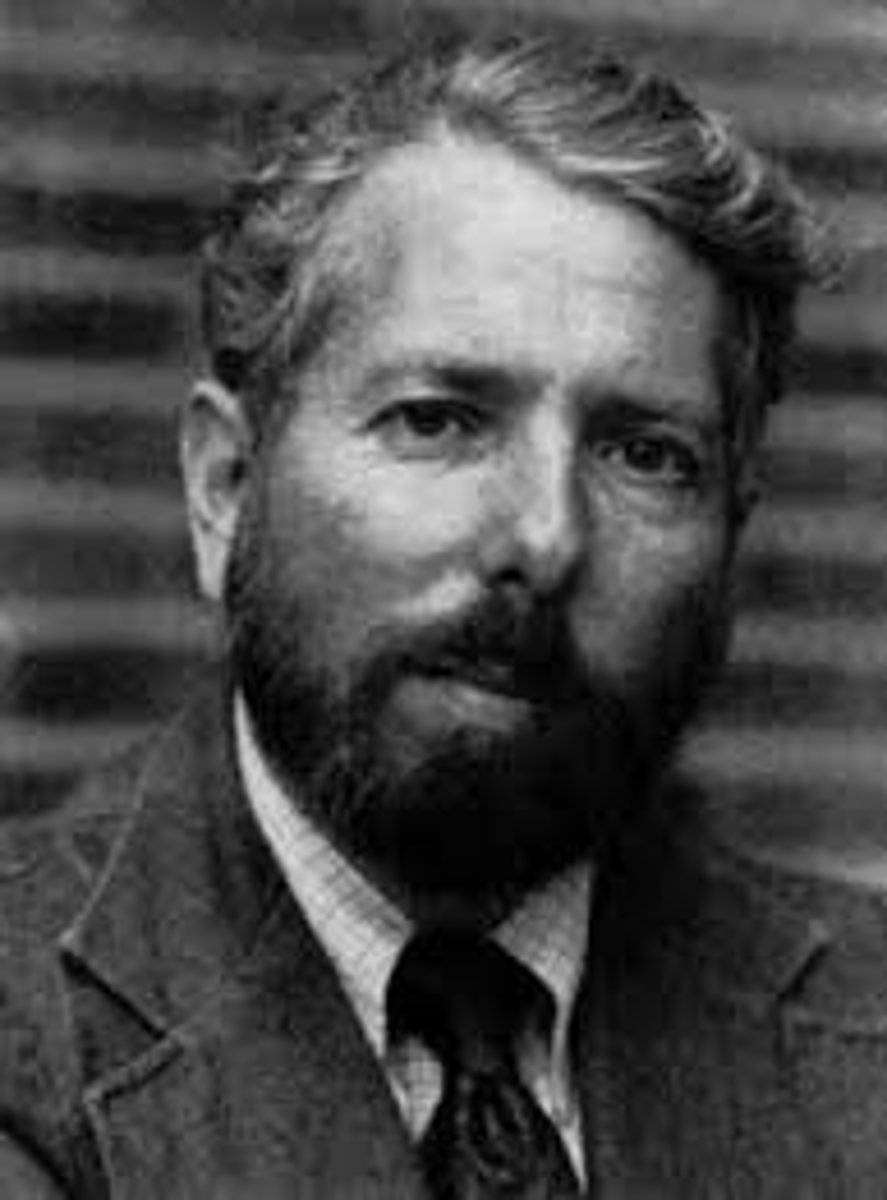
The Shock experiment
Experiment by Stanley Milgram, tested obedience involving roles of teacher and a learner which the teacher zaps the student when answers wrong, to see how far the teacher will go with learner and being told by experimenter to keep on going.
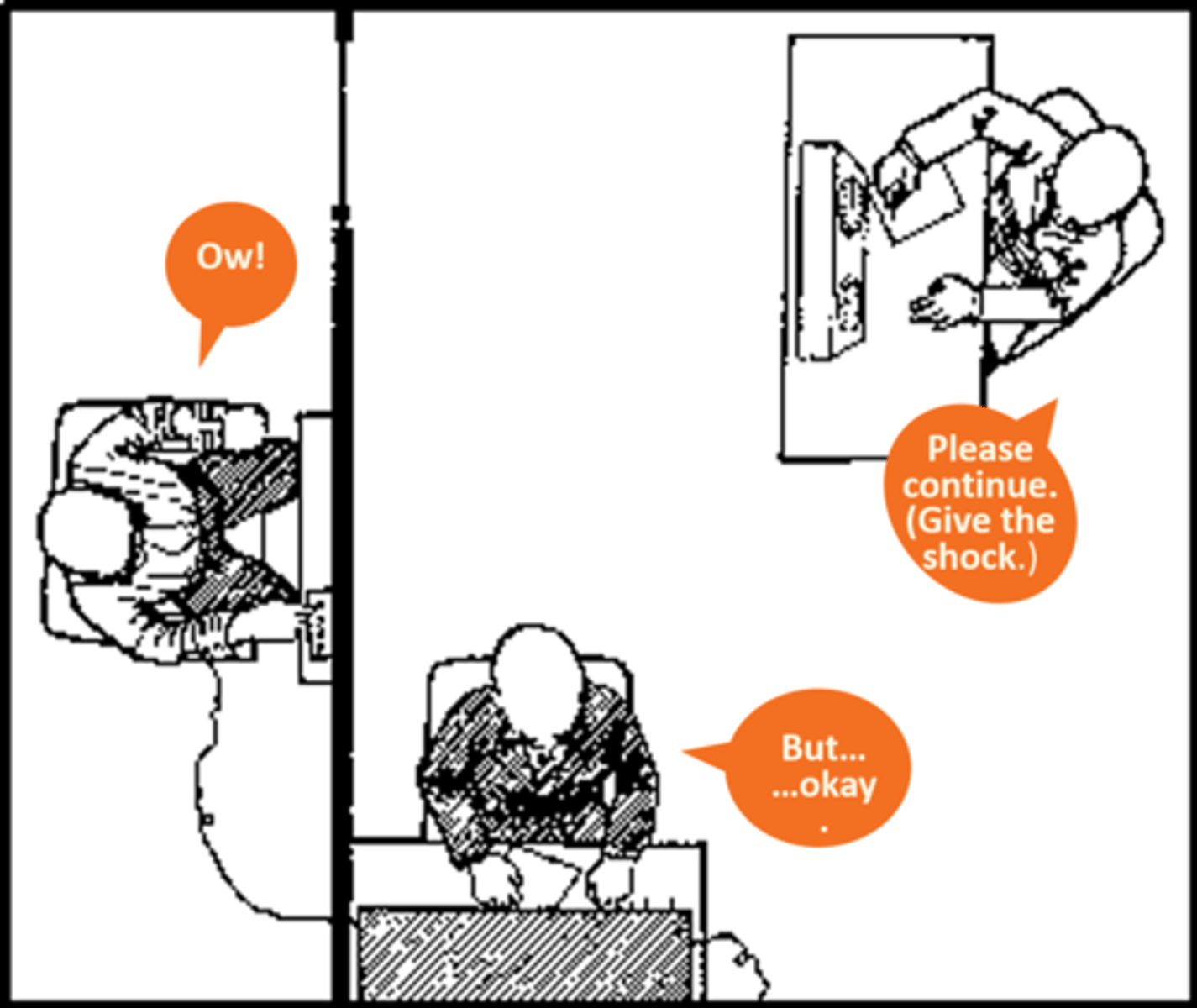
Hannah Arendt
a political scientist who wrote extensively on evil; argued that the English language has an assortment of terms that describe violence but aren't carefully distinguished or analysed
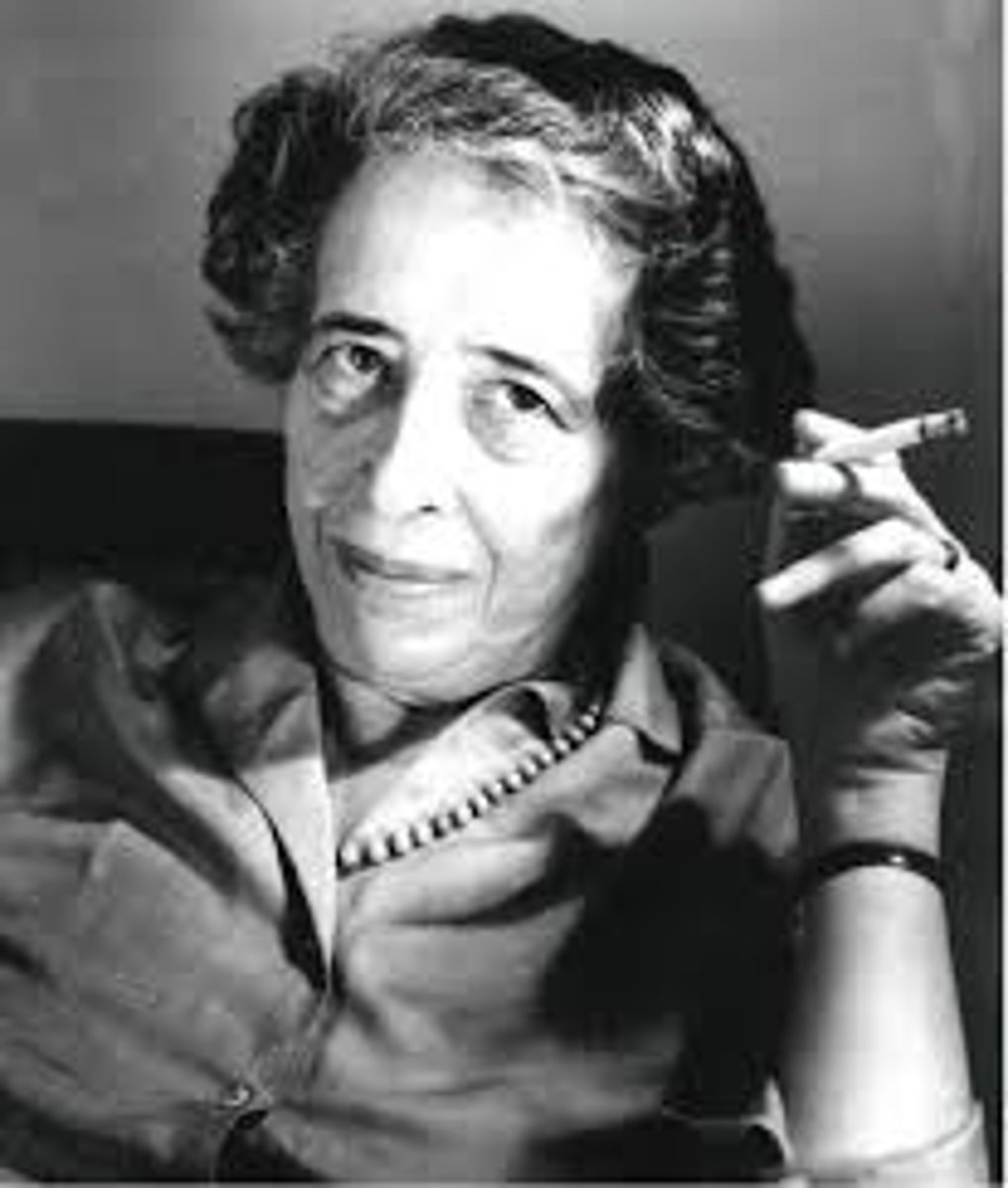
the doctrine of double effect
the principle that performing a good action may be permissible even if it has bad effects, but performing a bad action for the purpose of achieving good effects is never permissible; any bad effects must be unintended
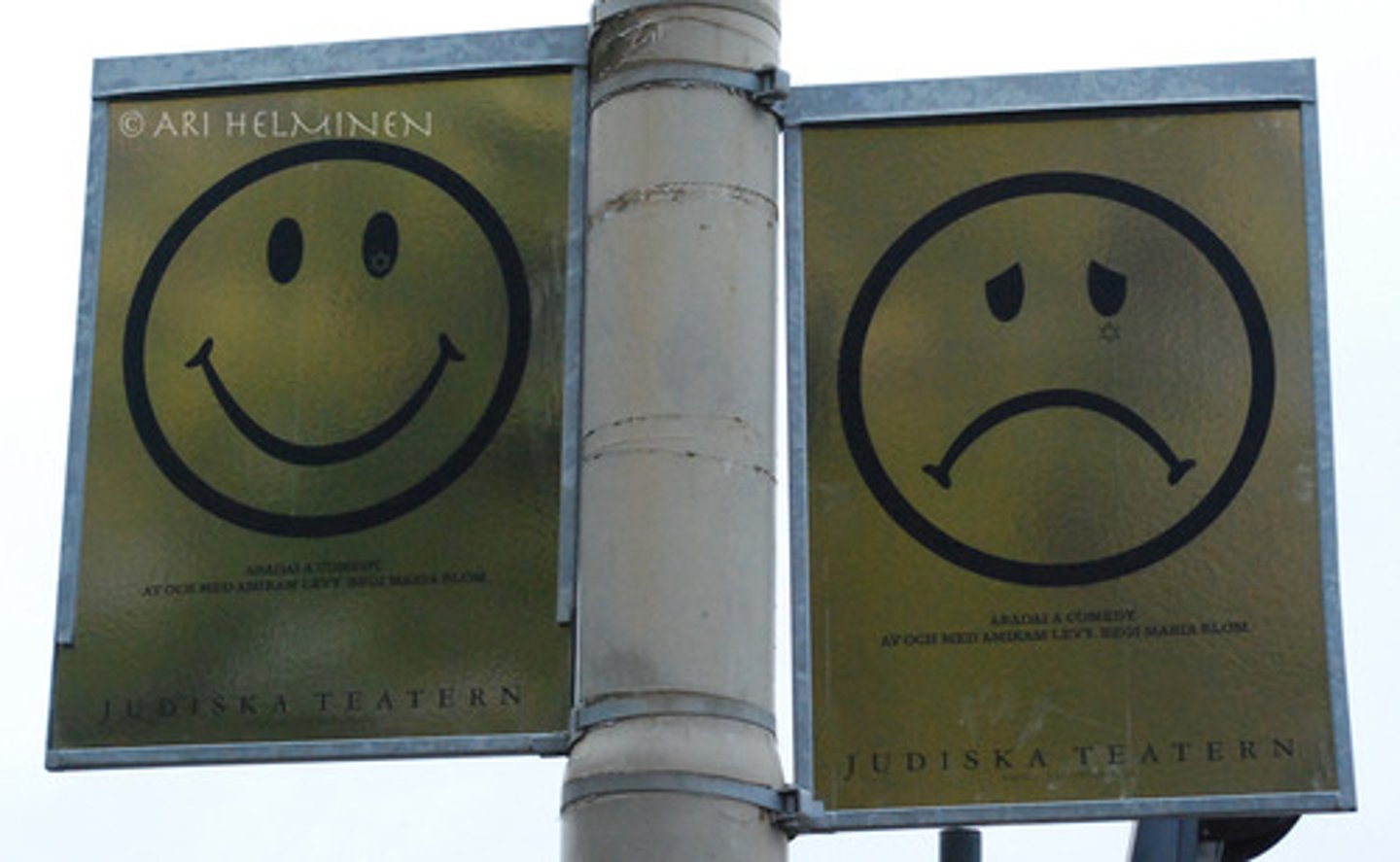
G.E. Moore
Modern English philosopher considered one of the founders of analytical philosophy. He wrote Principia Ethica, one of the main inspirations against ethical naturalism. He discussed the naturalistic fallacy, the indefinability of good through the open-question argument.
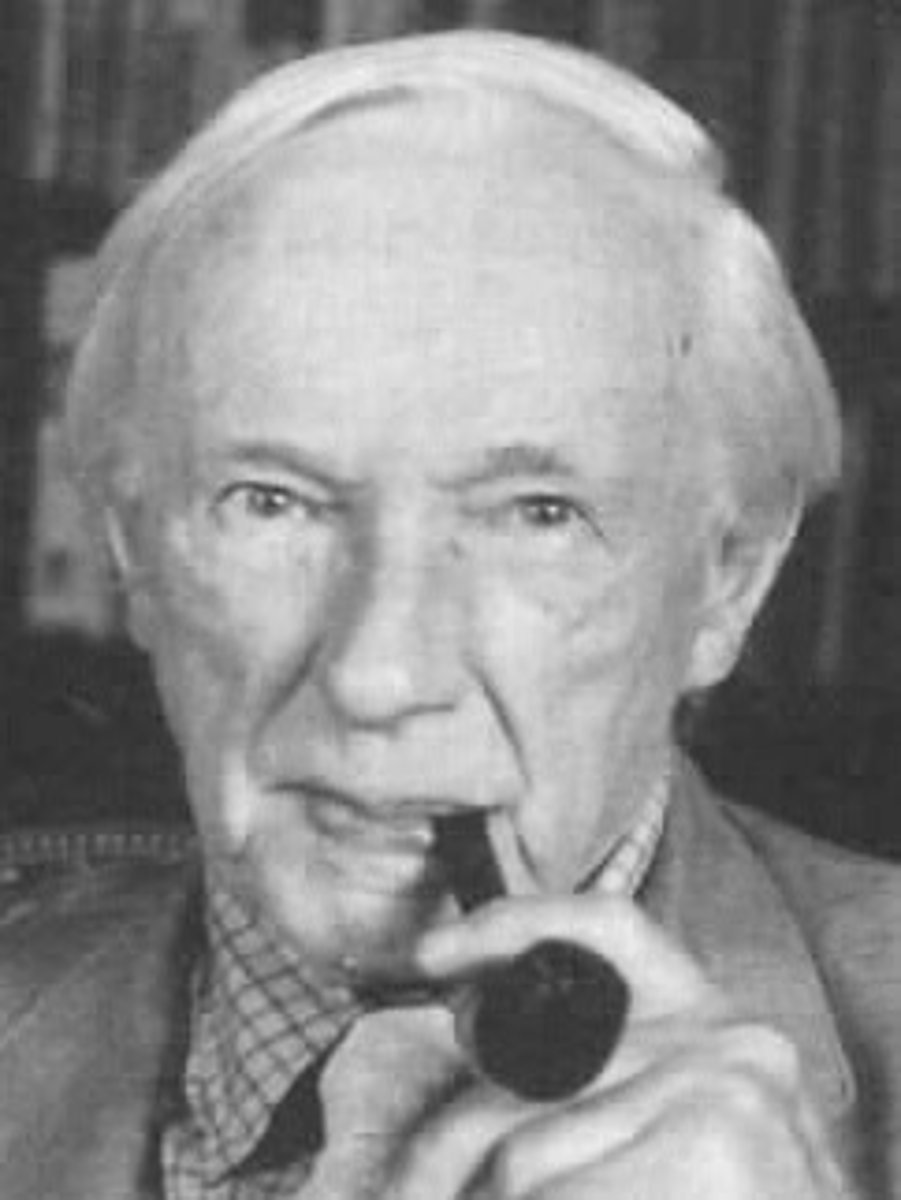
naturalistic fallacy
the (mistaken) idea that anything "natural" must be "good."
open-question argument
Moore's argument against naturalism that identifying the property 'good' with any other property is never correct because whether that property is, in fact, good is an open question (logically, it can receive a yes or no answer), whereas whether good is good is not an open question.
intuitionism
the theory that a rational person possesses inherent power to assess the correctness of actions (G.E Moore)
analytical philosophy
a method of approaching philosophical problems through analysis of the terms in which they are expressed, associated with Anglo-American philosophy of the early 20th century.
Thomas Hobbes (1588-1679)
English political philosopher who wrote Leviathan. He viewed human beings as naturally self-centred and prone to violence. He feared the dangers of anarchy more than the dangers of tyranny. Argued that monarchs have absolute and unlimited political authority.
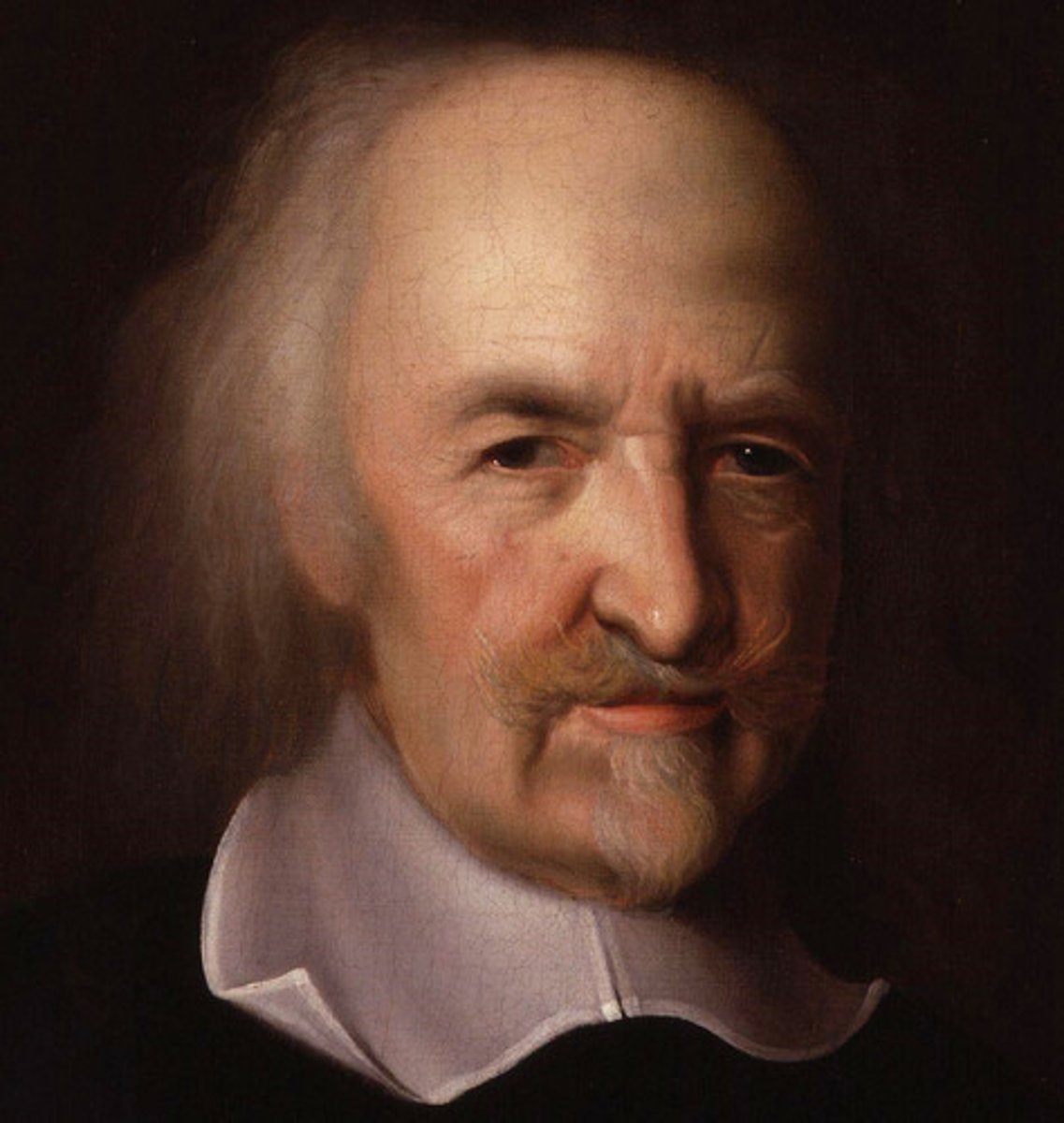
the state of nature
hypothetical condition assumed to exist in the absence of government where human beings live in "complete" freedom and general equality.
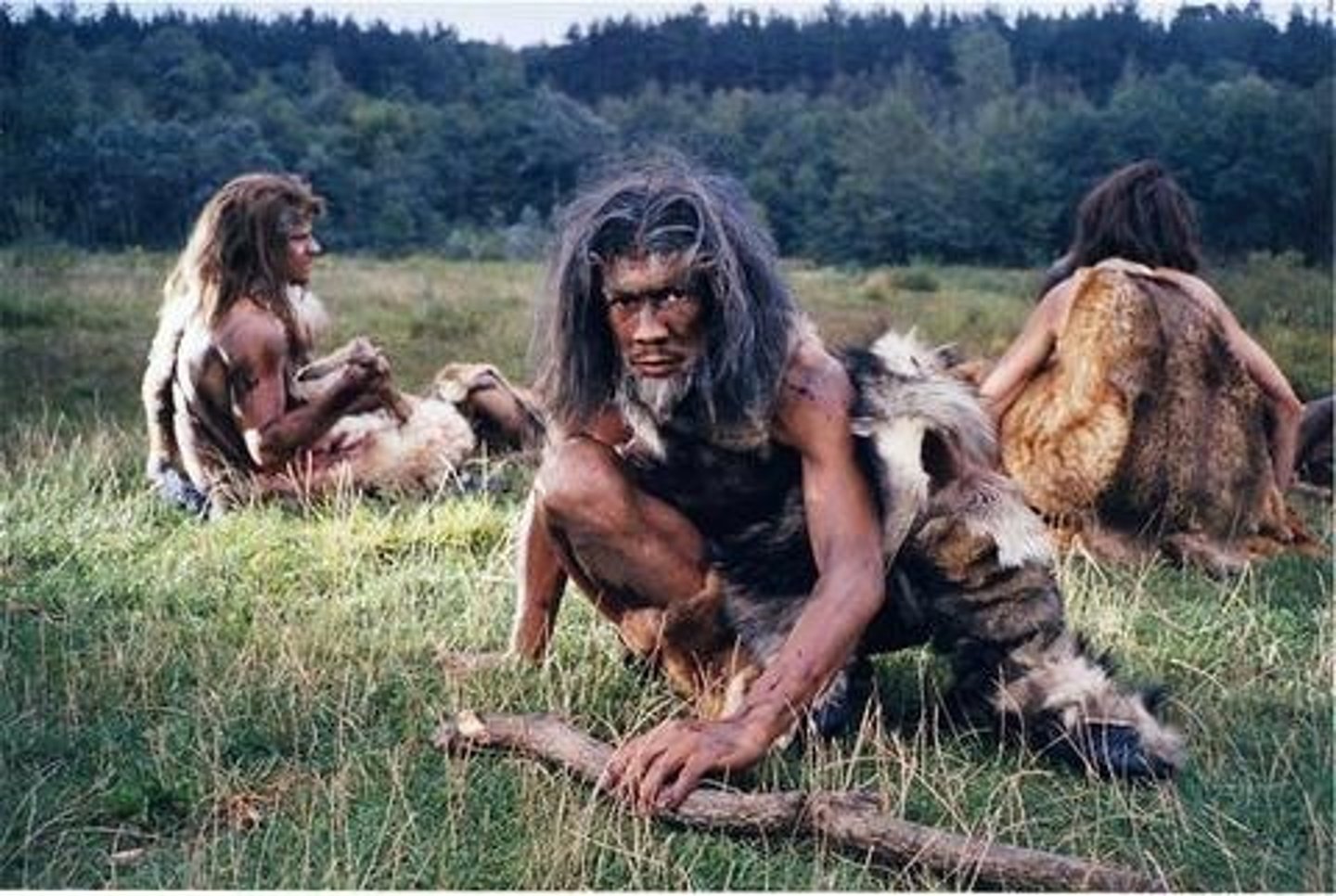
Jean-Paul Sartre (1905-1980)
A French existentialist who said that people just "turned up" and that there was no God to help honest people. His most famous for his statement "existence proceeds essence." He believed that first humans existed then our decisions and choices shape up our essence. Also believed that "man is condemned to be free."
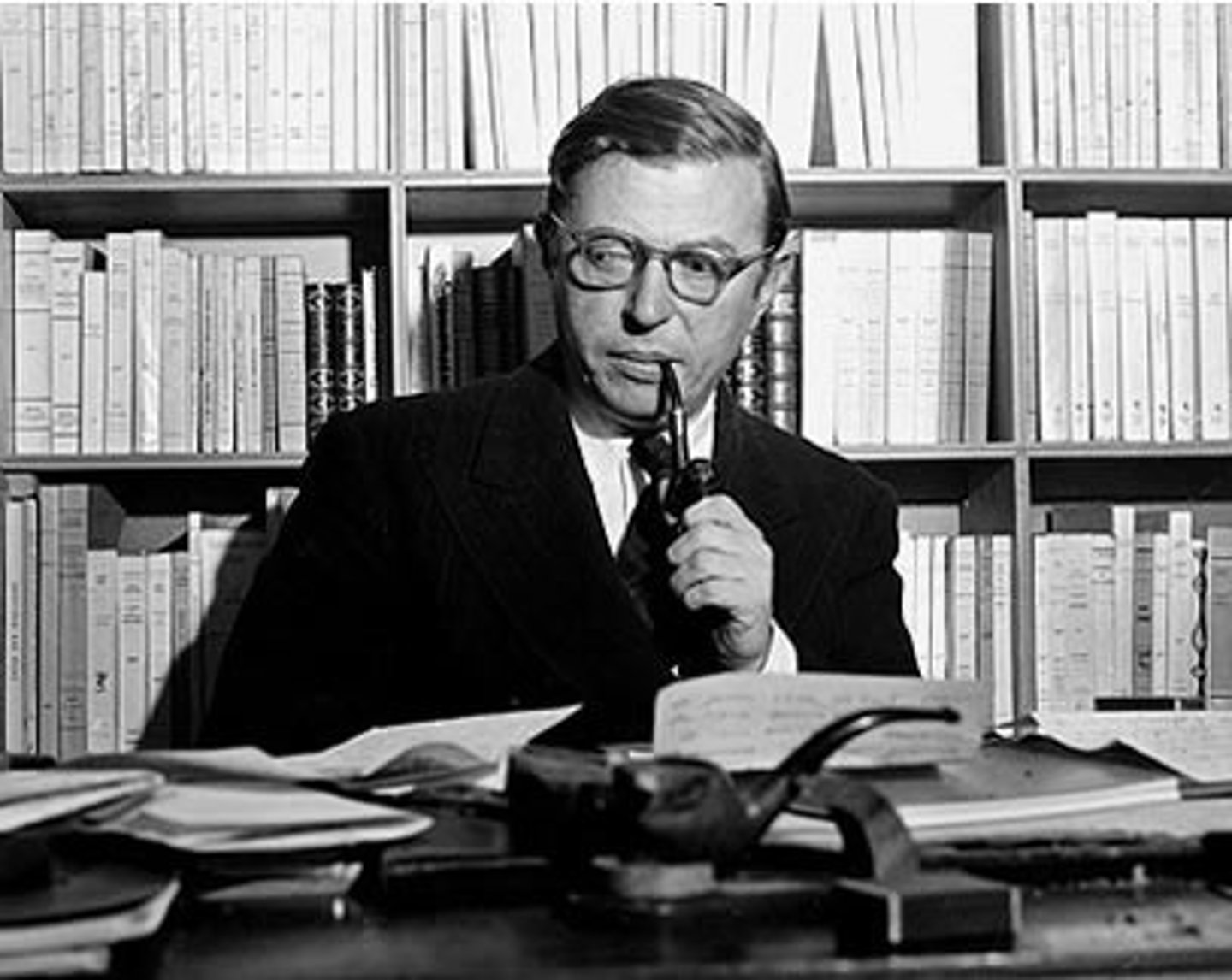
determinism
the philosophy that people's behaviour is produced primarily by factors outside of their wilful control.
bad faith
an attempt to evade discovering and understanding one's authentic self by yielding to the external pressures of society to adopt false values and disown innate freedom. (Jean-Paul Satre)
existentialism
a philosophical theory or approach that emphasizes the existence of the individual person as a free and responsible agent determining their own development through acts of the will.
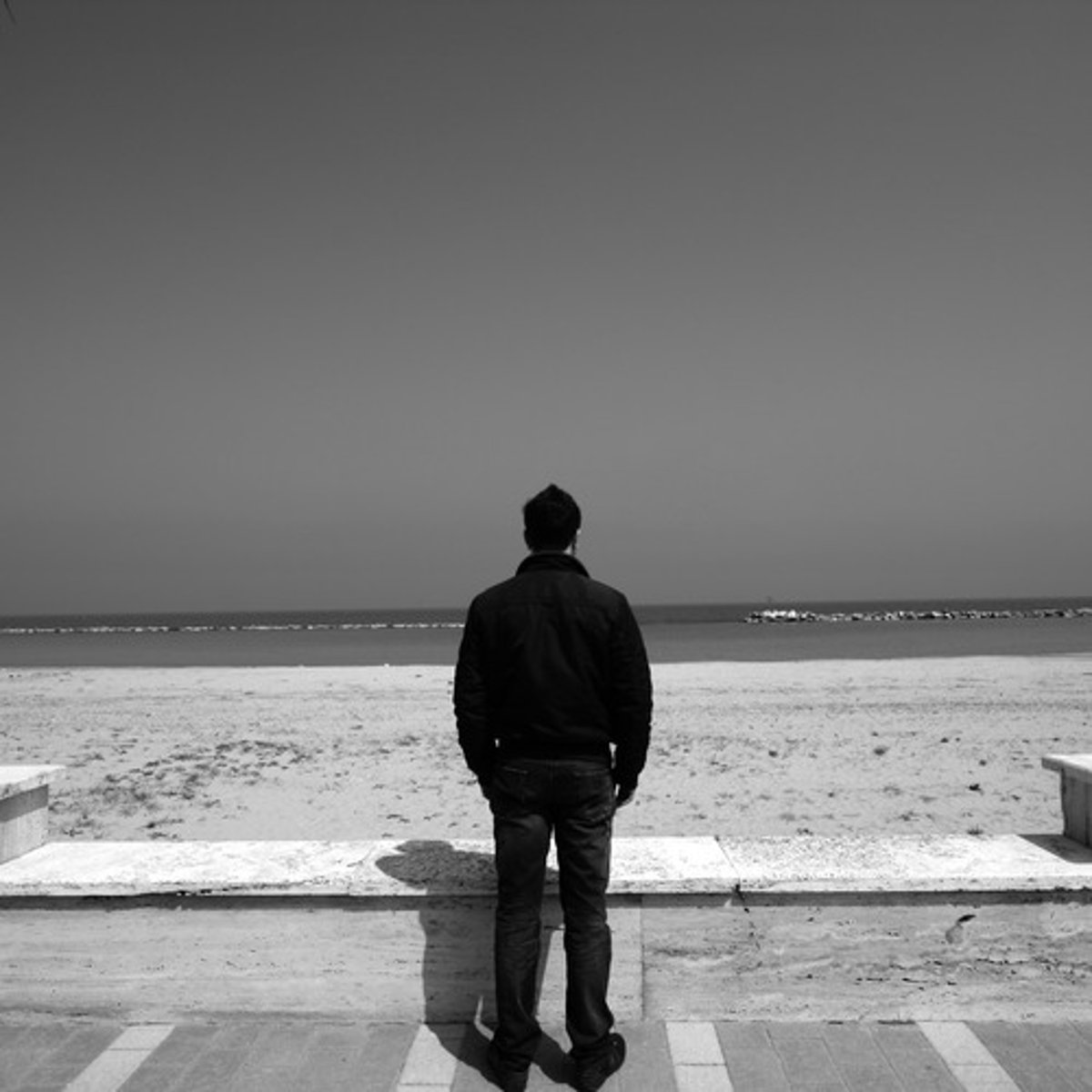
fallacy of composition
the incorrect belief that what is true for the individual, or part, must necessarily be true for the group, or the whole
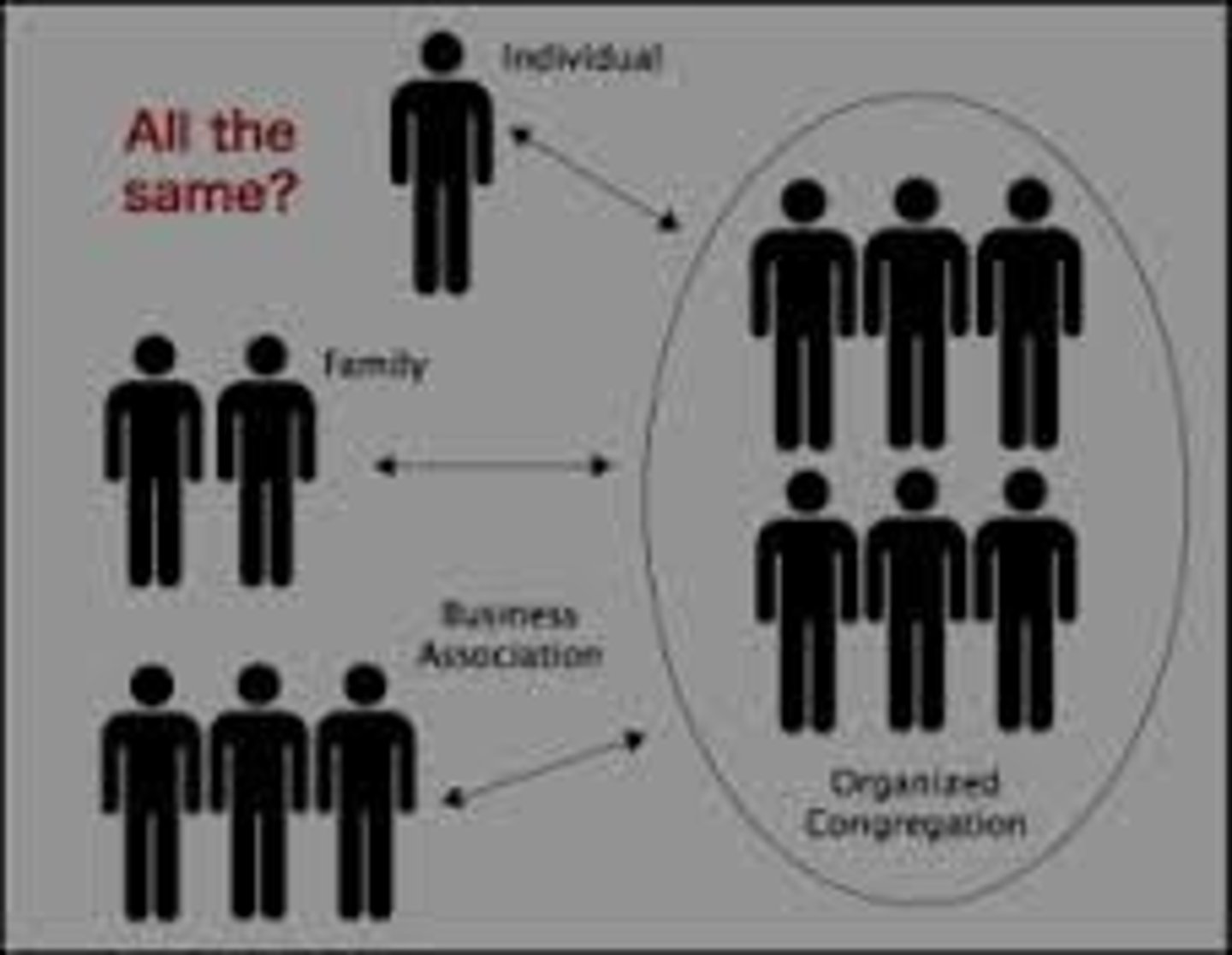
aetion
an explanatory factor, a reason or cause for something
The Theory of Forms
Plato's contention that ultimate reality consists of abstract ideas or forms that correspond to all objects in the empirical world. Knowledge of these abstractions is innate and can be attained only through introspection.

material cause
According to Aristotle, what a thing is made of.
formal cause
According to Aristotle, the form of a thing.
efficient cause
According to Aristotle, the force that transforms a thing.
final cause
According to Aristotle, the purpose for which a thing exists.
Kai Nielson (1926-2021)
an American professor of philosophy at the University of Calgary. Nielsen also wrote about philosophy of religion, and was an advocate of contemporary atheism. He was also known for his defence of utilitarianism, writing in response to Bernard Williams's criticism of it. He believed that cultural relativism challenged Natural Moral Law.
cultural relativism
the practice of judging a culture by its own standards
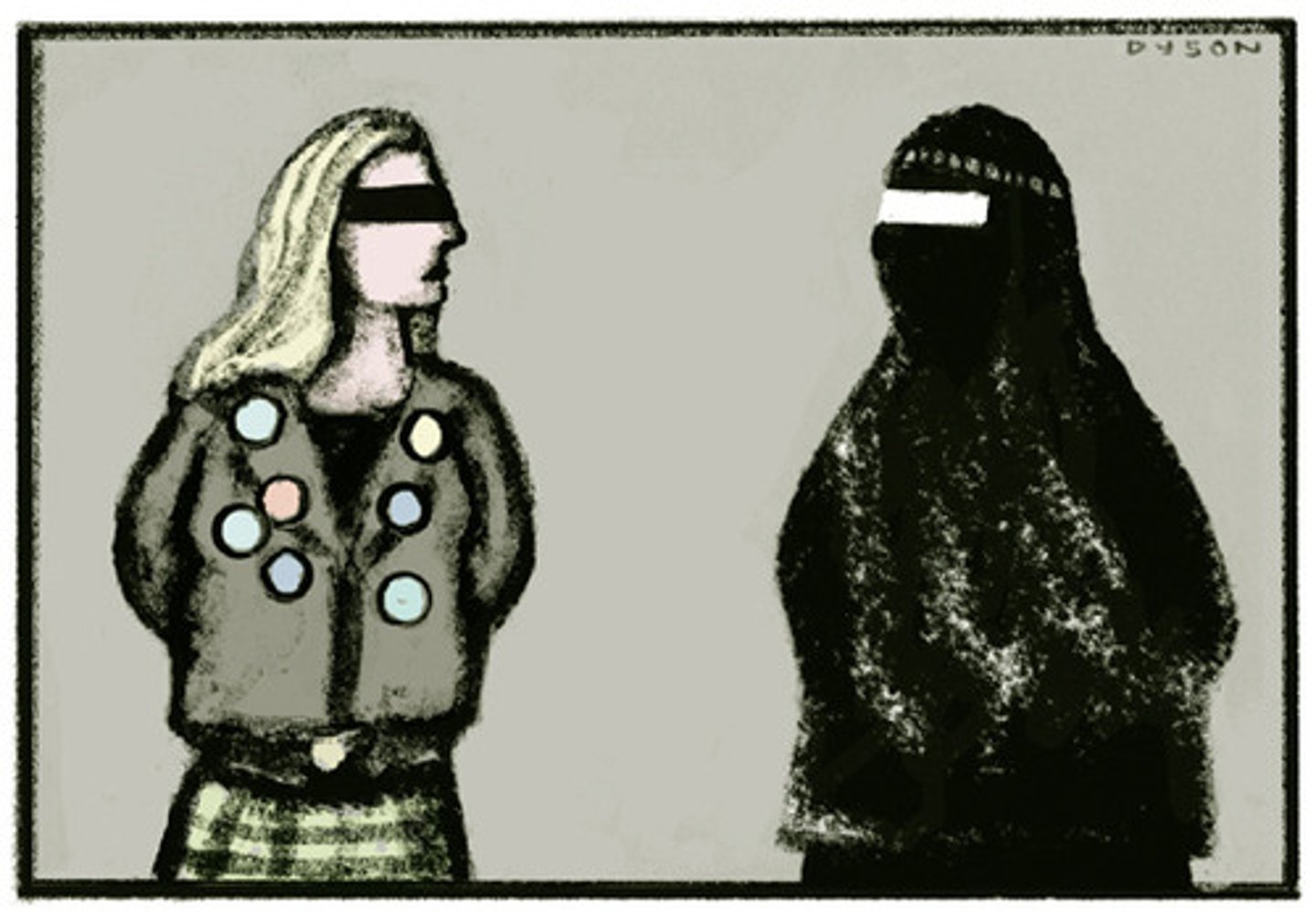
ethnocentrism
the belief in the superiority of one's nation or ethnic group.
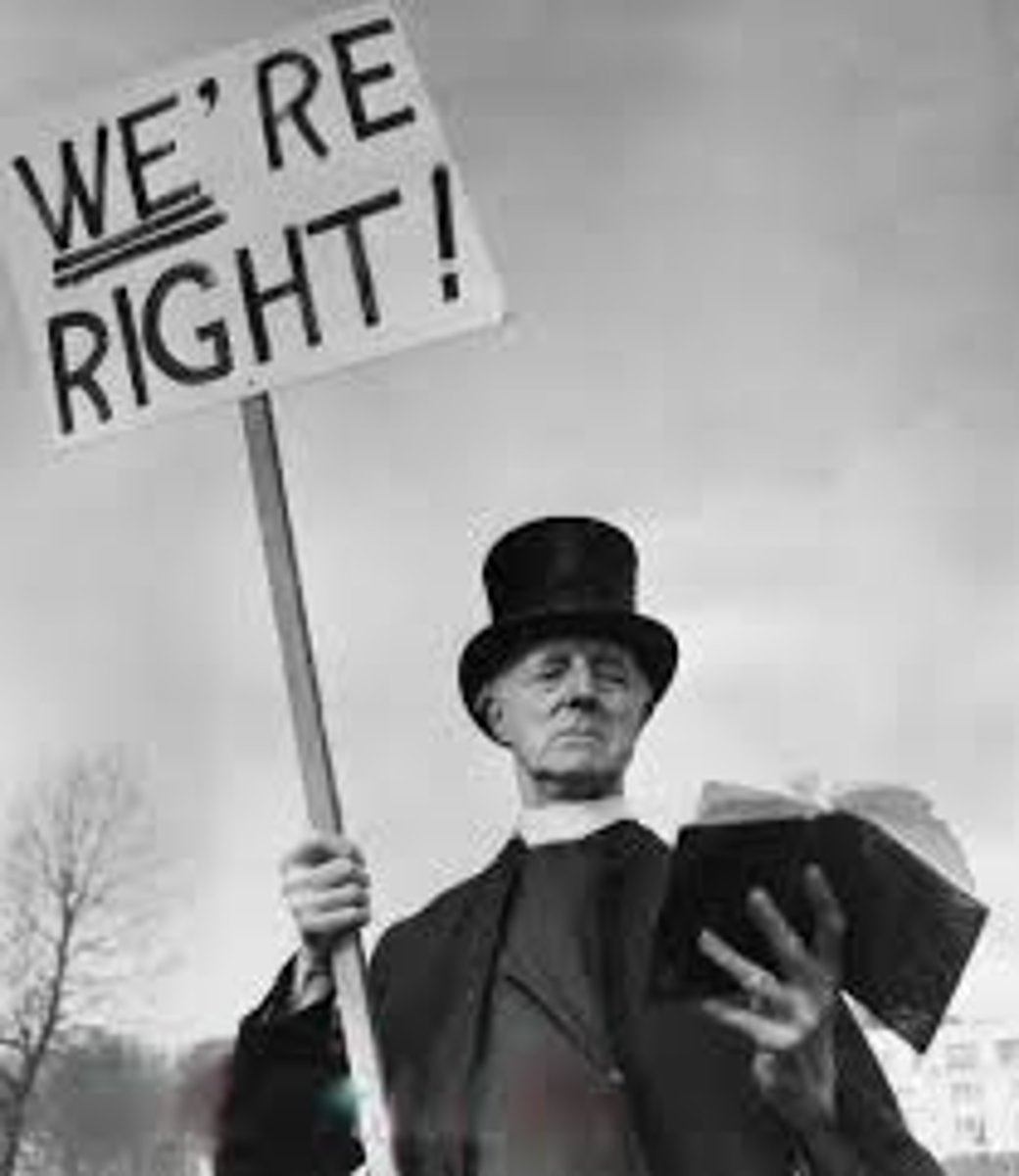
situation ethics
the idea that Christians should base moral decisions on what is the most loving thing to do
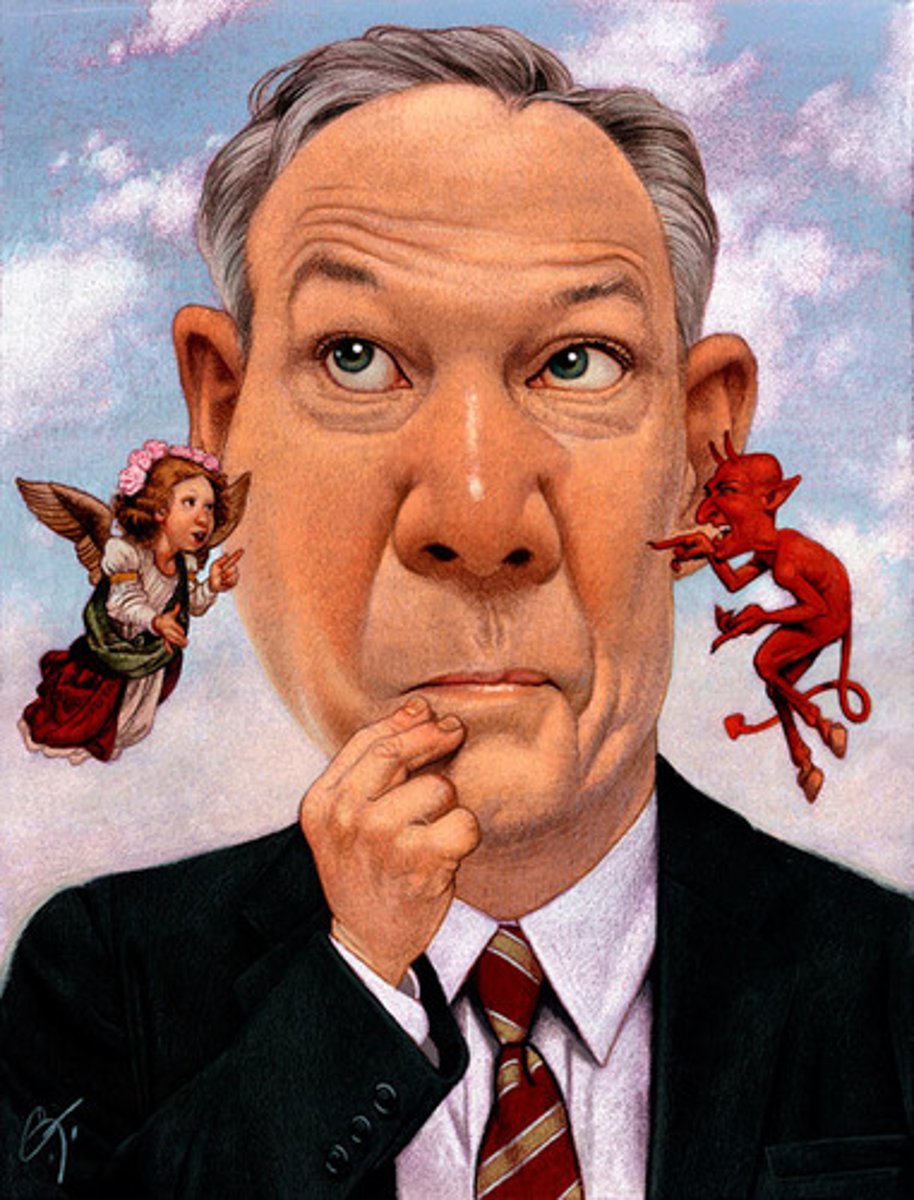
Joseph Fletcher (1905-1991)
an American professor who was the founder of the theory of situation ethics. In which, his theories were a leading academic proponent of the potential benefits of abortion, infanticide, euthanasia, eugenics, and cloning.
legalistic ethics
an ethical system that contains rules for every situation and/or the association of doing good with simply following those rules.
legalism
the belief that people were bad by nature and needed to be controlled
antinomian ethics
the view that rejects laws or legalism, arguing against moral, religious and social norms.
Friedrich Nietzsche (1844-1900)
a German philosopher who said that "God is dead," He is best known for his nihilism view that the only hope for mankind was to accept the meaninglessness of human life, and to then use that meaninglessness as a source of personal integrity and liberation.
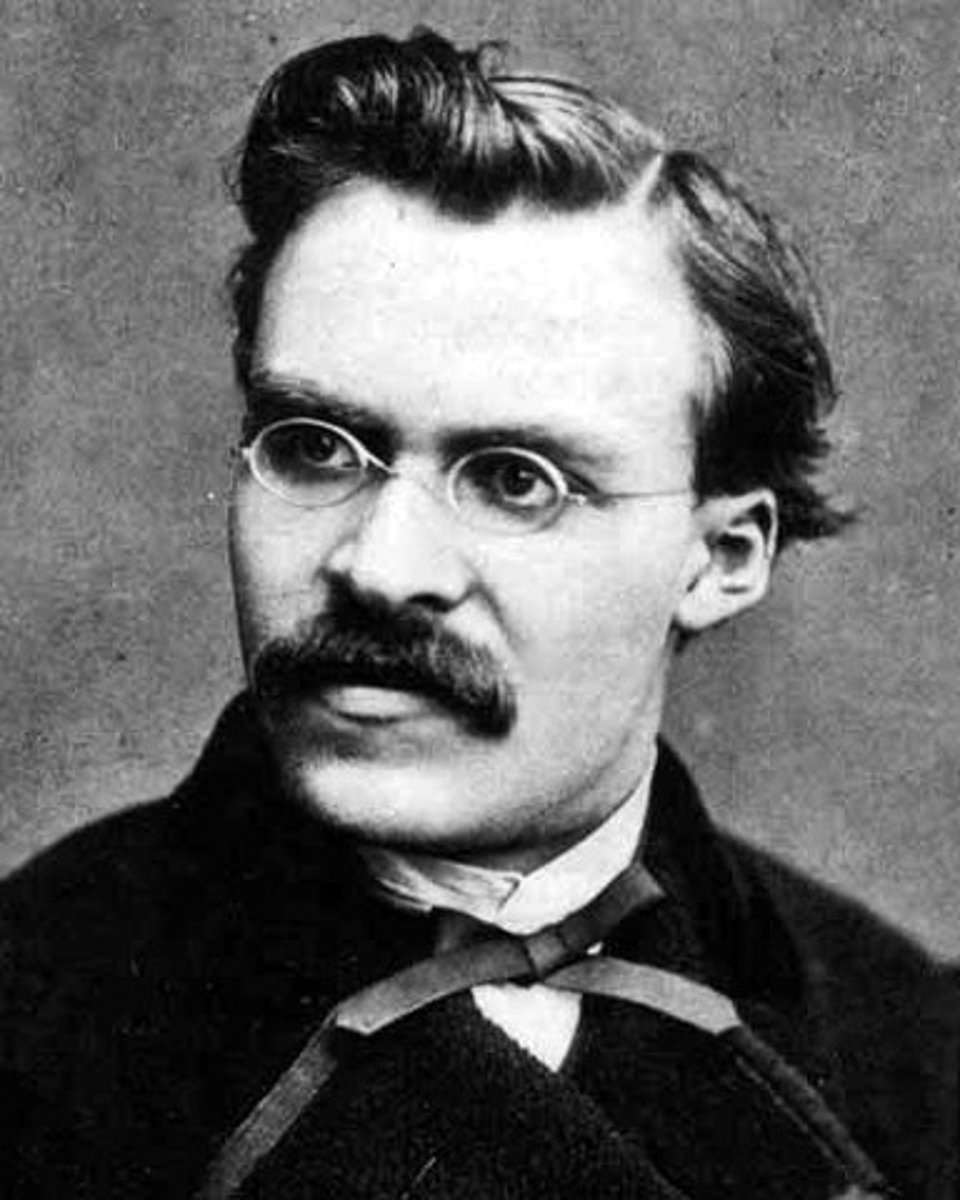
nihilism
a total rejection of established laws, religious or moral beliefs
agape love
an unconditional love for others because they were created in the image of God

The Four Working Principles of Situation Ethics
Pragmatism, Relativism, Positivism, Personalism
pragmatism
a philosophy which focuses only on the outcomes and effects of processes and situations.
relativism
a philosophy that bases ethical behavior on the opinions and behaviors of the person at hand
positivism
the application of the scientific approach to the social world
personalism
ethics centred on people, rather than laws or objects
AJ Ayer (1910-1989)
an English emotivist who concluded that becuase moral statements were not claims to knowledge, they were not fit for philosophical study and should be consigned to a separate class of statements, which he termed 'factually nonsensical'
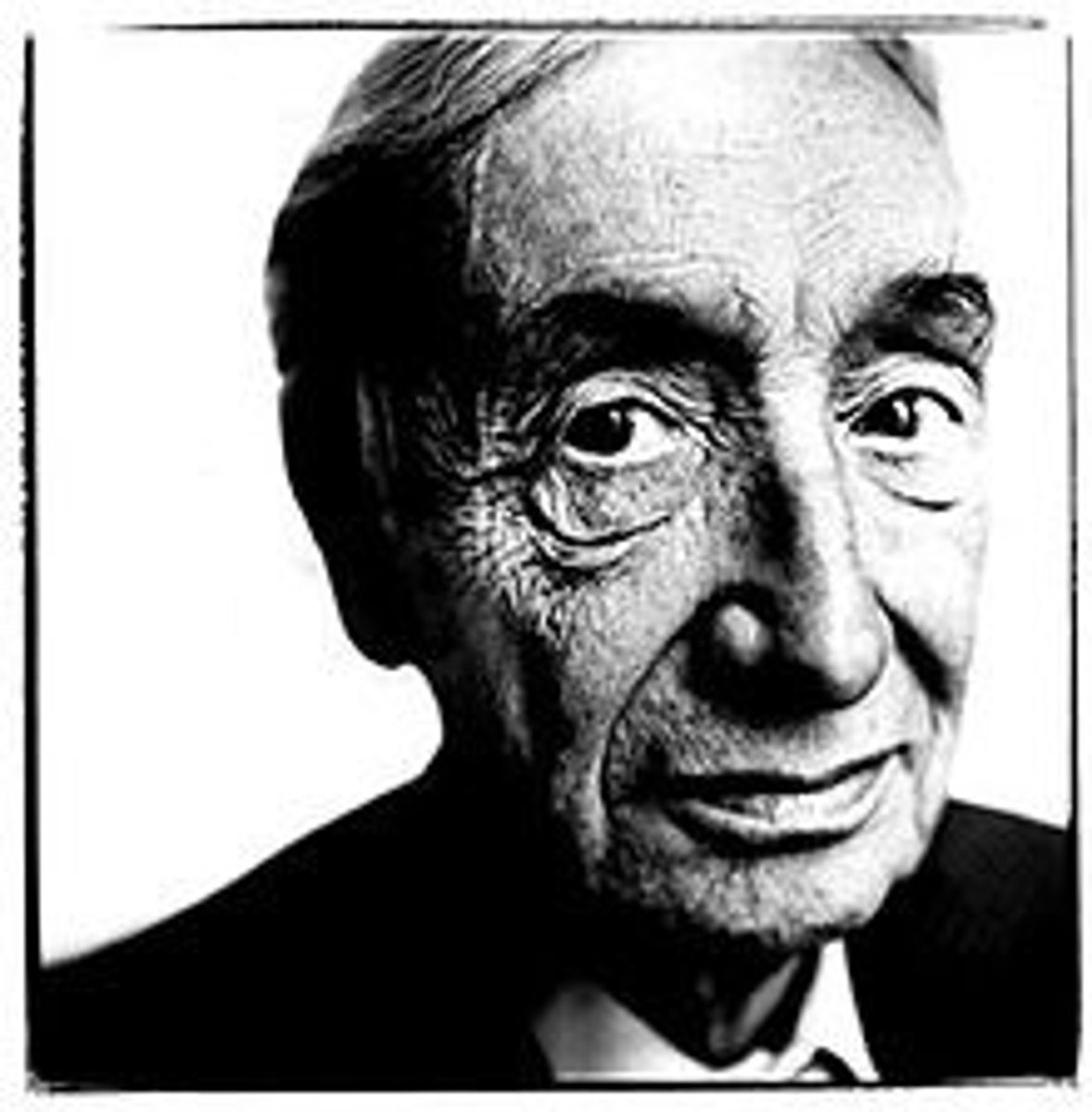
verification principle
All meaningful propositions are either analytically true/false or empirically verifiable. (Ayer)
emotivism
an ethical theory that regards ethical and value judgments as expressions of feeling or attitude and prescriptions of action, rather than assertions or reports of anything.
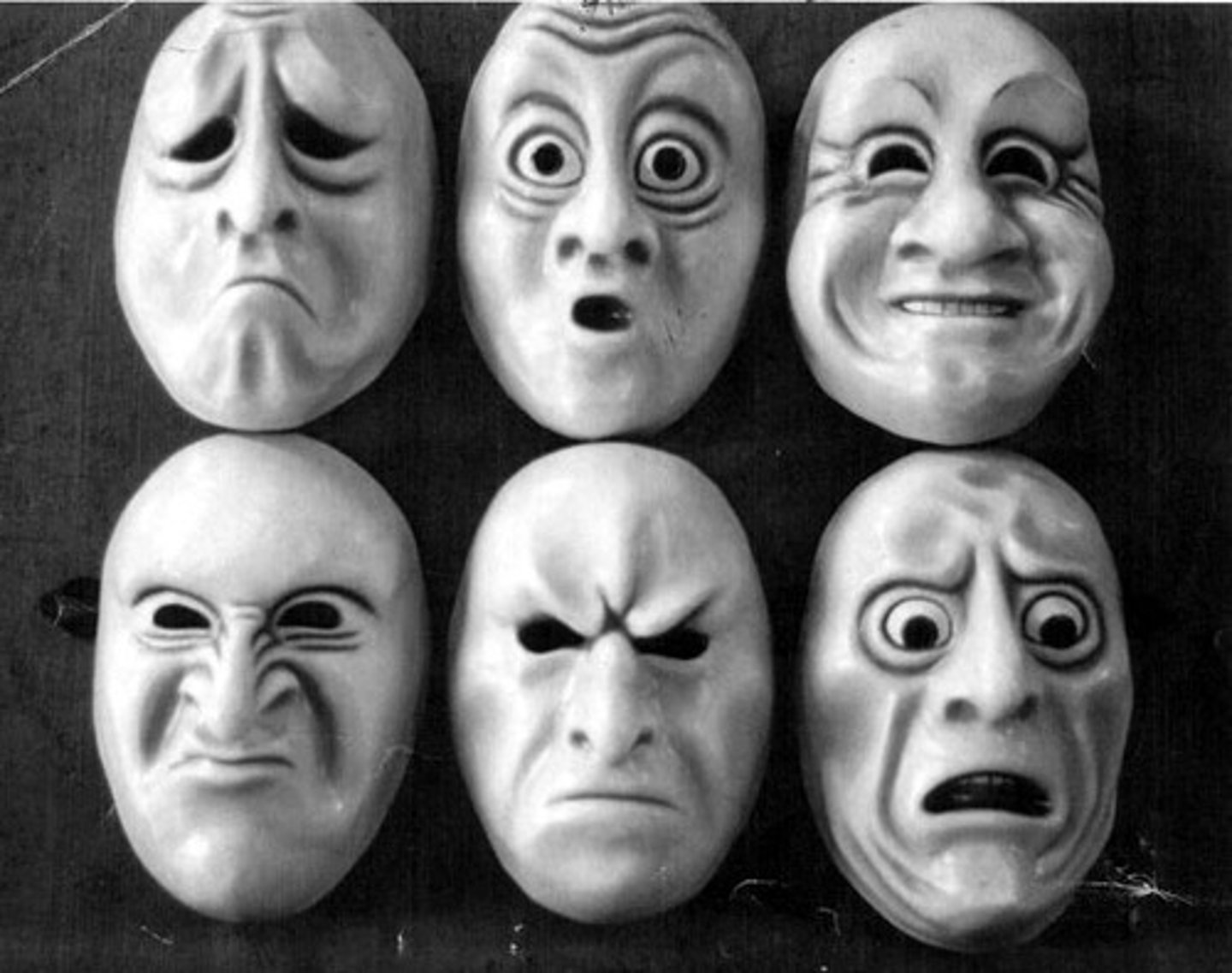
Rene Descartes (1596-1650)
French philosopher that argued for dualism between mind and body
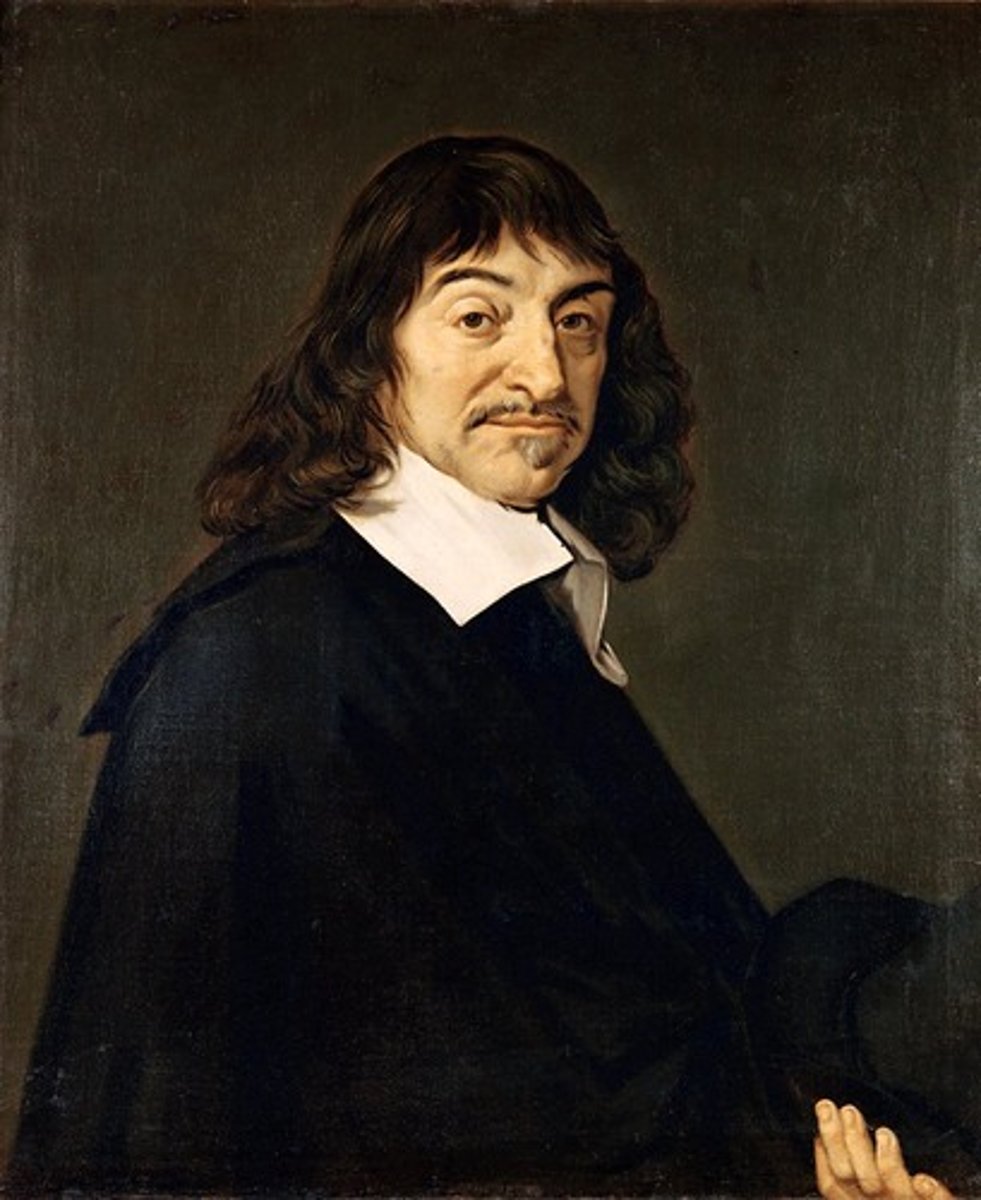
Immanuel Kant (1724-1804)
He developed deontology which is one of the most common traditional ethical theories.
Good Will (Kant)
the only thing that is truly intrinsically good having good motives and intentions disregarding emotions, inclination and consequences
duty
the action that is morally required
categorical imperative
An ethical guideline developed by Immanuel Kant under which an action is evaluated in terms of what would happen if everybody else in the same situation, or category, acted the same way.
hypothetical imperative
a moral obligation that is dependent on if one desires an implied goal
maxim
an established principle; a truth or rule of conduct that are acted upon
universal law
Kant's theory that the moral worth of an action is based upon whether it can be applied universally—that is, in every situation, for every person. If an action can be turned into a universal law, it is good and comes from a purely good will.
Summon bonum
the highest, most supreme good
kingdom of ends
Kantian ideal of rational, moral society in which persons are respected as ends in themselves
persons as ends
The idea that human beings should be treated with dignity and respect, and not as mere objects
contradiction in will
A rule that you would not wish to see universalised as it might work against you, eg 'do not give money to the poor.'
contradiction in the law of Nature
A rule which could not be applied universally eg. never speak until you are spoken to
ought implies can
The idea that moral responsibility (ought) requires ones' ability to act (can)
Kant's three postulates
Freedom, Immortality, God
postulates (Kant)
things that are assumed as a basis for reasoning. For Kant, free will, immortality and God have to be postulated for morality to make sense
Act Utilitarianism
an act is right if and only if it results in as much good as any available alternative
Bentham
British philosopher who's analysis of law and legislation led to the developement of utilitarianism
Hedonic Calculus (Bentham)
A method for calculating the value of pleasure through the application of seven basic criteria: (1) intensity, (2) duration, (3) certainty, (4) propinquity, (5) fecundity, (6) purity and (7) extent
utility
Ability or capacity of a good or service to be useful in increasing overall good and decreasing overall evil.
J.S. Mill
Wrote On Liberty in 1859, and wanted absolute freedom of opinion on all subjects. He was an advocate of women's equality and was fond of utilitarianism.
Rule Utilitarianism
a utilitarian theory asserting that the morally right action is the one covered by a rule that if generally followed would produce the most favourable balance of good over evil, everyone considered
Harm Principle (Mill)
the actions of individuals should only be limited to prevent harm to other individuals
tyranny of the majority
The potential of a majority to monopolize power for its own gain to the detriment of minority rights and interests.
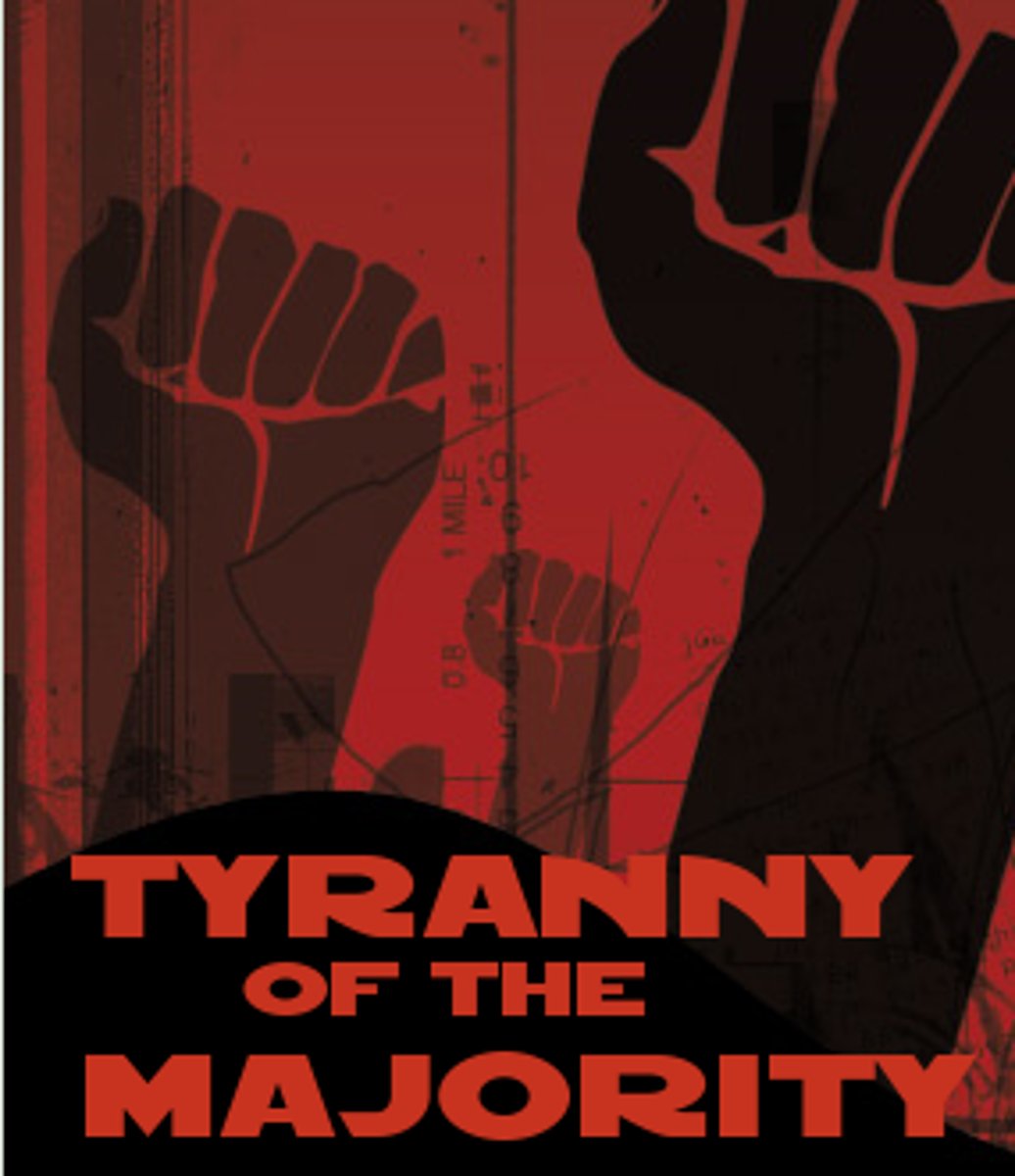
Preference Utilitarianism (Singer)
Utilitarianism that promotes the preferences of those who are involved in the situation
active euthanasia
the deliberate ending of someone's life
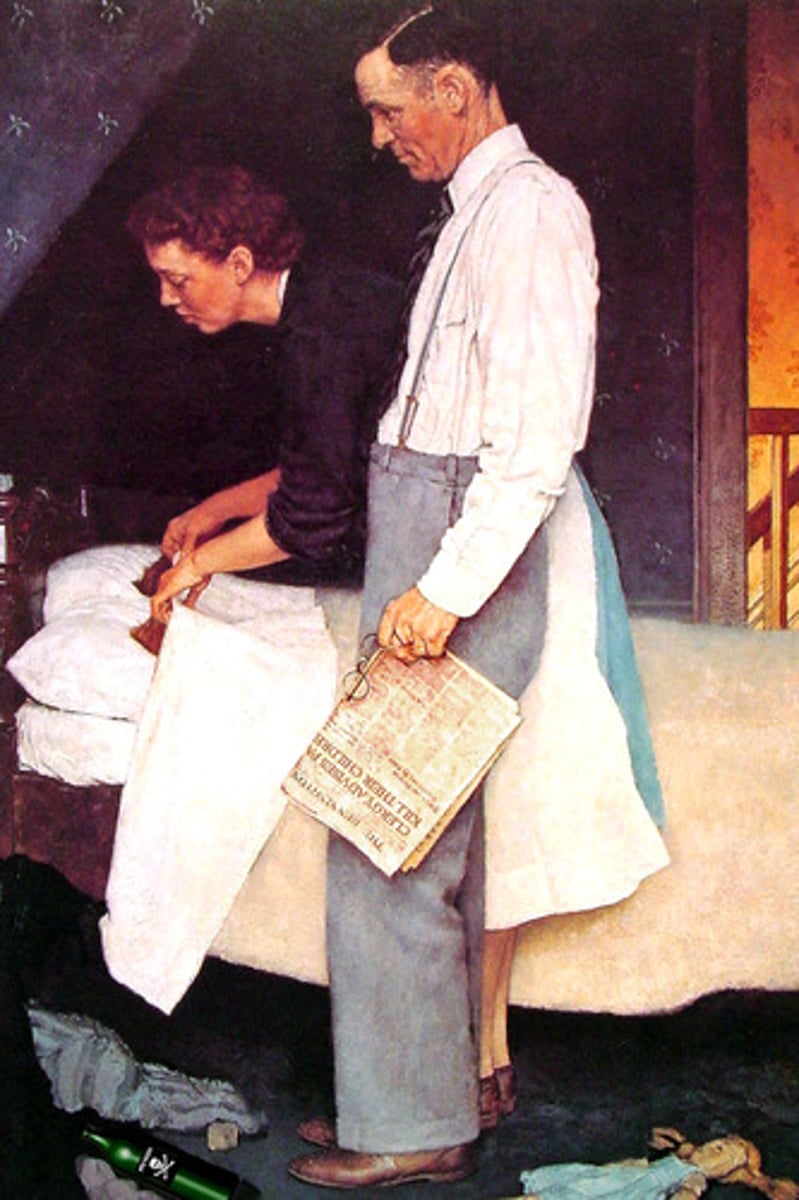
euthanasia
the act of painlessly killing a suffering person or animal; mercy killing
